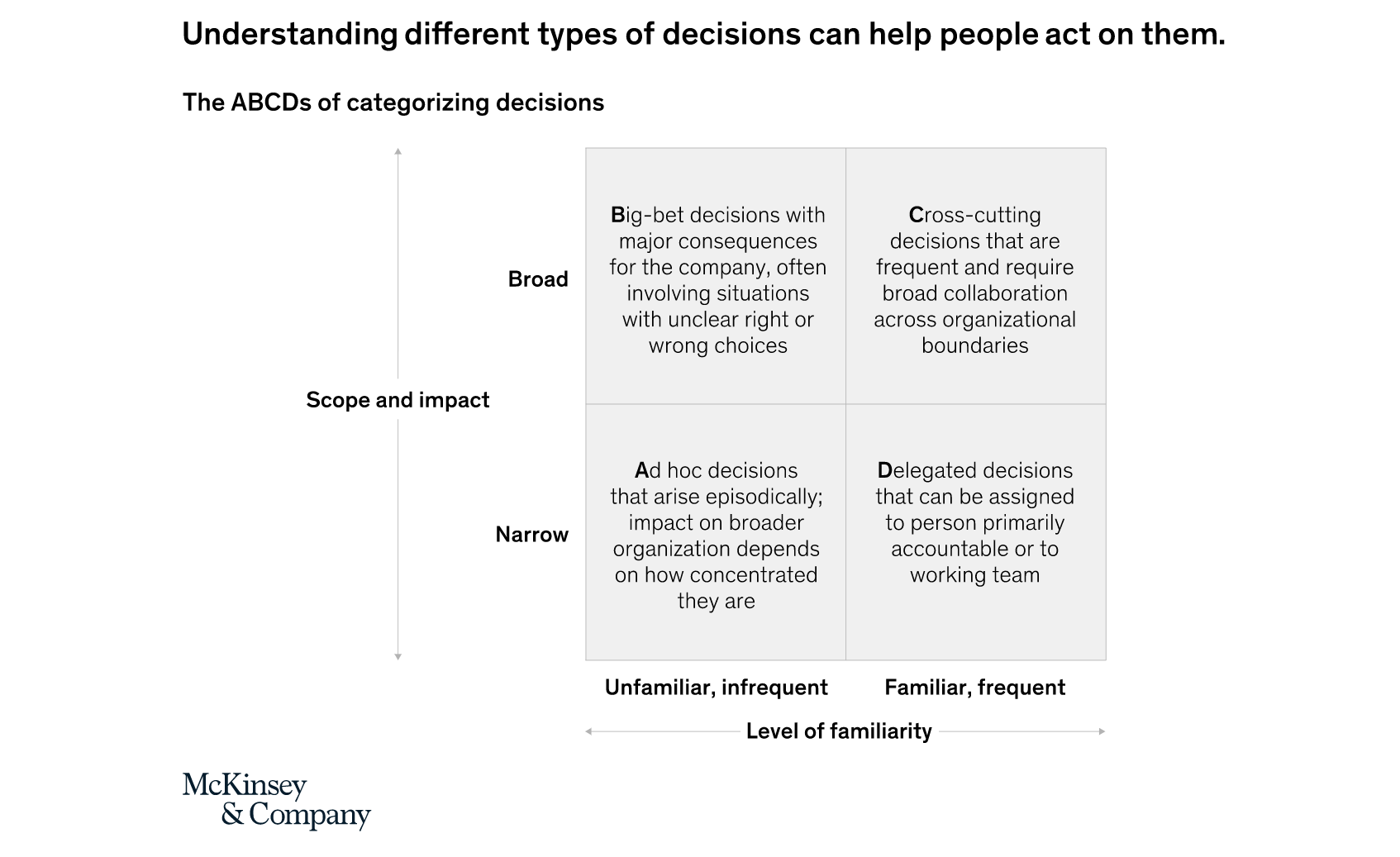How to empower employees to make decisions?
Fully empowered employees make good decisions, resolve problems and drive businesses forward faster. We look at how different leadership and management styles can help them succeed.
A McKinsey Global Survey found that decision-making takes up 70 percent of management's time. The average Fortune 500 company typically equals more than half a million days of managers' time. A majority of respondents to the survey said that their organizations do not spend that decision-making time well. As business becomes ever more complex and dynamic, managers have to make more decisions, under time pressure, and often with too little or the wrong kind of data, the respondents say.
Organizations should treat different types of decisions differently to make the best use of their time on operational decisions. The McKinsey survey was based on a survey of more than 1,000 business leaders across the U.S. and Europe.
We’ve written about the value of classifying decisions according to their frequency, risk, and importance and organized them into four broad categories:
- Big-bet decisions with major consequences for the company, often involving situations with unclear rights or wrong choices;
- Ad hoc decisions that arise episodically; impact on broader organization depends on how concentrated they are;
- Cross-cutting decisions that are frequent and require broad collaboration across organizational boundaries;
- Delegated decisions that can be assigned to person primarily accountable or to the working team
Five actions are essential for organizations to empower their employees and improve everyday decision-making:
> Organizations must cultivate decision-making skills, such as assessing problems, analyzing risk, and empower employees with instant access to poorly accessible corporate data to support their decisions with numbers.
> Leaders should role-model mindsets and behavior that promote empowerment.
> Managers and employees will need significant support to get comfortable with failure.
> The authors say managers don't have time to be highly involved in every business decision, so they should spend effort upfront to decide what is worth their focused attention.
> Delegating business decisions to front-line employees, to promote their importance for the business process they own.
